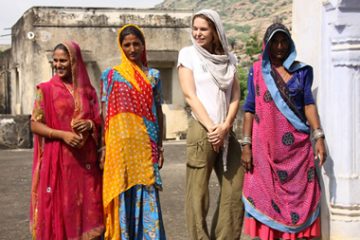South China Morning Post, 8 December, 2013.
Heavy hitters meeting at a Thai eco-resort seek to avert environmental catastrophe by targeting and changing the mindsets of the world’s most powerful people and companies, writes Jo Baker
The night is clear and black, the stars are close and the voice of Johan Rockstrom echoes around the open-air cinema of a luxury Thai resort as he describes the world’s impending demise. Reclining in the shadows with pre-dinner cocktails, a motley crew of problem-solvers listens. And as the leading sustainability scientist gets to a key part of his speech – on rainfall patterns – it feels as if the Earth has decided to make a point. Without warning, the heavens open.
“I was just about to get to the good news,” the Swede says, as his audience runs for cover.
It may have chosen one of the more luxurious conference spaces in the world, but try not to hold that against the Slow Life Symposium, which – in its fourth year – is threatening to become a driver of…





